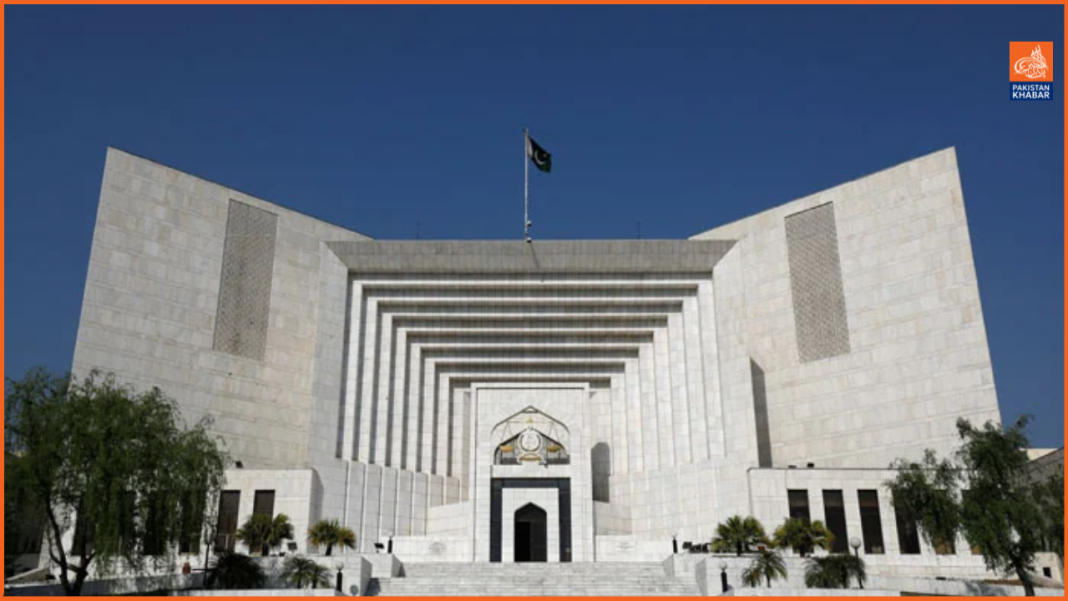Legal experts view Speaker Ayaz Sadiq’s letter as an effort to justify the Election Commission of Pakistan’s (ECP) non-compliance with the Supreme Court’s order. They caution, however, that failure to implement the court’s rulings could lead to contempt charges. Furthermore, they emphasize that the National Assembly speaker has no legal authority to direct the ECP to act in opposition to the Supreme Court’s orders, which remain binding on the ECP.
On Thursday, National Assembly Speaker Sardar Ayaz Sadiq wrote to the ECP, claiming that the Supreme Court’s decision regarding reserved seats “cannot be implemented under the Amended Election Act, 2017.” This letter followed the government’s unsuccessful attempt to introduce a constitutional amendment package.
Last week, eight Supreme Court judges issued a clarification criticizing the ECP for allegedly creating confusion around the court’s July 12 ruling, which declared the PTI eligible for reserved seats in parliament. The court suggested that the ECP’s request for clarification was a tactic to delay implementing the decision. The ECP had already notified 39 out of 80 PTI members of the National Assembly and sought further guidance regarding others. The July 12 decision, made by an 8-5 majority, overturned the Peshawar High Court’s ruling that had denied PTI the reserved seats.
In August, the government passed the Election Act (Amendment) Act, restricting independent lawmakers from joining political parties after a certain period and amending Sections 66 and 104 of the Election Act, 2017. This amendment also required political parties to submit their reserved seat lists within a specified timeframe, or risk losing eligibility for those seats.
When the government proposed the Election Act amendment, The News consulted legal experts to assess whether the law could override the Supreme Court’s July 12 decision. Opinions were divided, with some suggesting the amendments might face legal challenges, especially on their retrospective application.
Speaking to The News about Speaker Sadiq’s letter, Barrister Rida Hosain referred to the Supreme Court’s September 14 clarification, noting that the court’s ruling is rooted in a constitutional interpretation. “Parliament cannot overturn the court’s interpretation of the Constitution through regular legislation,” she said, further clarifying that all MNAs who submitted a party affiliation certificate are legally considered PTI members, and the ECP’s inaction is merely a procedural delay. Hosain added that the ECP’s continued defiance of the court’s binding order could signal a constitutional breakdown.
Lawyer Ali Javed Darugar views the speaker’s letter as an attempt to justify the ECP’s refusal to comply with the Supreme Court’s orders, portraying the situation as a complex constitutional conflict. However, Darugar explains that judges rely on other institutions, particularly the executive, to enforce their orders, making enforcement of the court’s rulings a predominantly political issue.
He stressed that the Supreme Court’s orders are binding on the ECP, regardless of the ECP’s opinion on the orders’ legal merits. The speaker of the National Assembly, Darugar emphasized, “has no legal power to direct the ECP to act against the Supreme Court’s directions.”
Darugar quoted U.S. Supreme Court Justice Robert Jackson’s famous line, “We are not final because we are infallible, but we are infallible only because we are final,” to underline that the speaker is not on equal footing with the Supreme Court regarding legal interpretation. He also recalled the PTI’s argument in defense of the speaker’s actions when the no-confidence vote against Imran Khan was dismissed under Article 6—a stance the court had promptly rejected.
Regarding the Supreme Court’s options if the ECP continues to refuse compliance, Darugar explained that the court can initiate contempt proceedings against individuals defying its orders, which could result in jail time. Under Article 190 of the Constitution, executive authorities are bound to assist the Supreme Court.
Supreme Court advocate Hafiz Ehsaan Ahmad described this as a “catch-22 situation” for the ECP, which is caught between the Supreme Court’s September 14 order and the recent amendments to the Election Act, 2017, made with retrospective effect. Ahmad suggested that the ECP should promptly approach the Supreme Court, present the recent legal developments, and request a full court hearing from the same judges who handled the reserved seats issue. This step, Ahmad believes, is essential to resolving the political and constitutional crisis surrounding the allocation of reserved seats.
Hosain concluded by reminding that the Election Act amendments apply retrospectively, and that a political party’s rights cannot be adversely affected by obligations that did not exist during the elections. A party cannot be required to comply with rules that were not in place at the time of elections.




